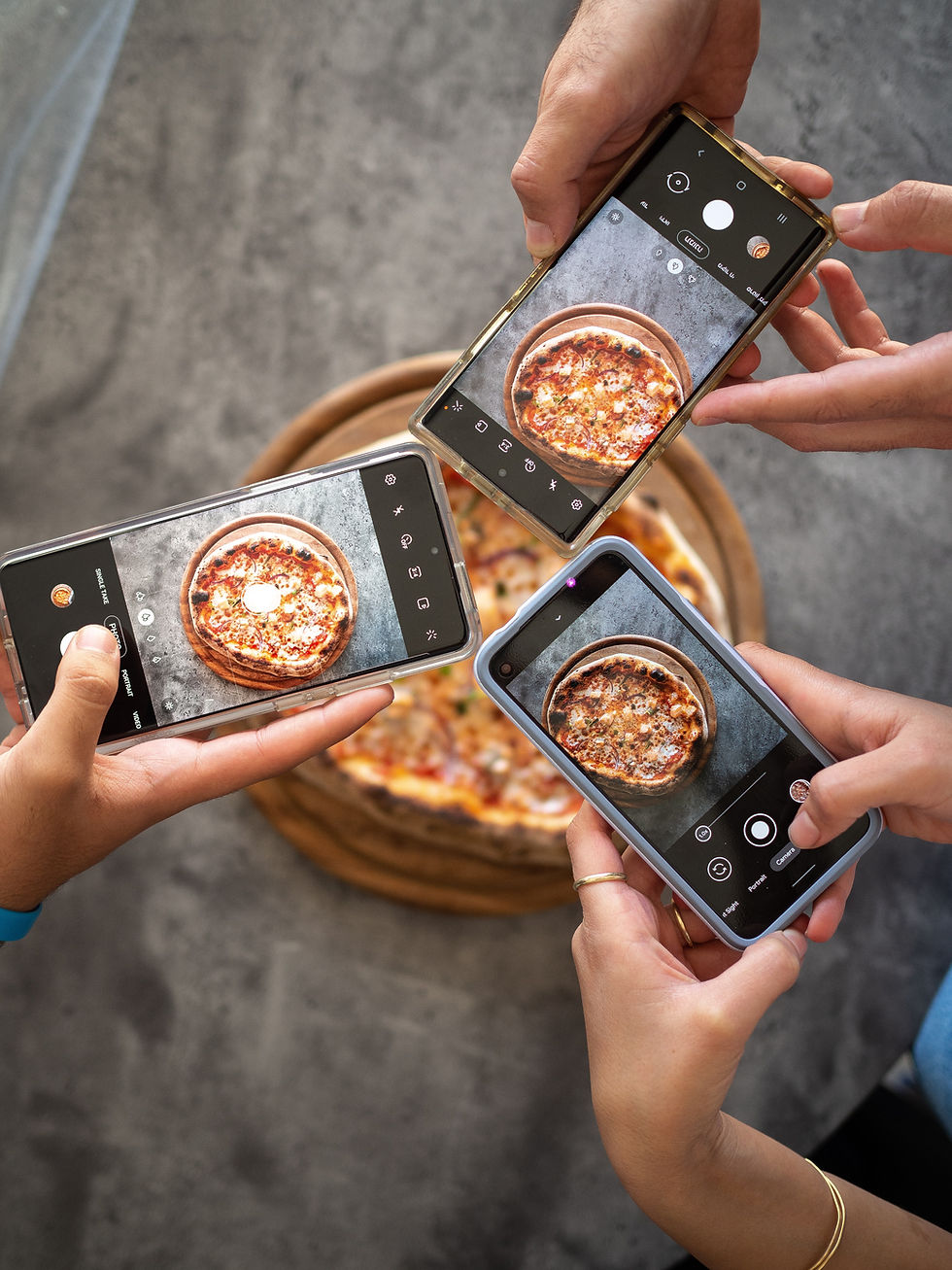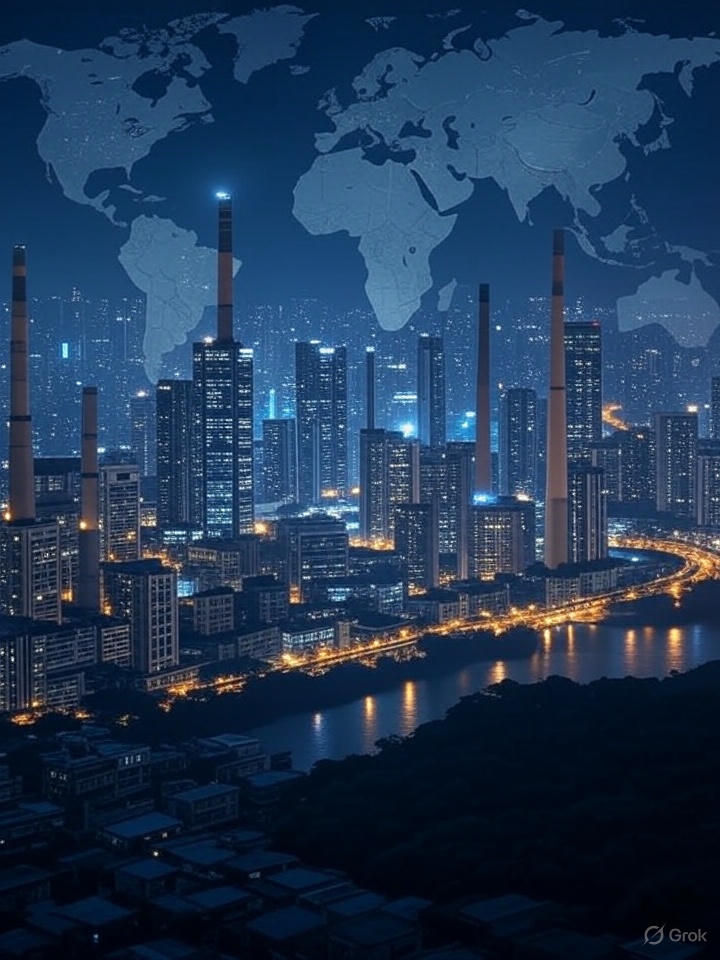The curated self
- thebrink2028
- Aug 19
- 4 min read

A generation is rewriting the very code of consumption—not just what they buy, but who they become through what they consume. They are Gen Z, birthed in the digital age, weaving their identities from likes, follows, and painstakingly crafted online personas. At first glance, the narrative is a gleaming upward trajectory: technology empowering youth, creativity flourishing, brands adapting, and a limitless new economy of self-expression. But beneath this curated surface lurks an unsettling truth TheBrink dares to confront.
Gen Z’s identity economy is no just a trend; it’s a revolution driven by necessity and crisis, barely noticed by many but soon impossible to ignore globally. This is far from a story of unbridled progress or digital utopia—it’s a fractured reality marked by anxiety, financial precarity, and a profound social disconnect hidden behind captivating screens and slick branding. They live in an economy where self-worth is quantified by pixels and followers, where financial security is evaporating under the relentless march of AI and economic instability.
Globally, Gen Z comprises nearly a quarter of the population in Asia-Pacific by 2025 and is reshaping consumption and identity in real-time across continents. Unlike past generations, they are not defined by traditional markers like age or gender but by their passions, creativity, and digital footprints. An astonishing 81% prefer to be identified by interests rather than labels. Yet their soaring creativity and self-expression mask the harsh economic realities they face: unemployment, student debt, AI replacing jobs, and a corporate world increasingly wary of human labor.
The illusion of endless upward mobility and innovation peddled by mainstream narratives crumbles under scrutiny.
College enrollments have plunged over 5% since 2024—the largest drop since the pandemic's peak—signaling disillusionment with outdated education systems. Layoffs are rampant even in sectors once deemed invulnerable, from banking to marketing, while 37% of hiring managers would rather trust AI than freshly minted Gen Z graduates to fill roles.
This is not just an economic hiccup; it’s a fundamental shift in the labor market, forcing young people to craft identities not simply as employees, but as creators and entrepreneurs just to survive.
Social media, while offering a stage, also acts as a stage trap. Gen Z’s consumption decisions are hyper-influenced by platforms like TikTok, YouTube, and Instagram, where trends dictate purchases in real-time and peer validation fuels spending habits. They navigate a paradoxical world obsessed with authenticity but drowning in curated facades and influencer-driven hype.
Many are financially savvy—77% in India aspire to own homes, 59% want cars early, and 55% dream of international travel—but almost half must rely on parental support or save diligently as economic insecurities come crashing.
What’s shockingly underreported is the cognitive and psychological toll of this reality. The pressure to self-curate, constantly outperform, and visibly succeed online amplifies mental health struggles. The narrative that this generation is digitally empowered overlooks an identity crisis—where self-worth is precariously tied to external validation, visibility, and consumption that’s less about joy and more about survival. The identity economy forces Gen Z into a continuous performance, eroding genuine community bonds and deep connections.
From India to the US, Europe to Asia-Pacific, the identity economy is not a localized cultural quirk—it is a global phenomenon with disturbing universality. Beyond the glossy marketing campaigns and influencer culture lie hidden fractures: sustainability concerns are often sidelined by economic pragmatism, with many skeptical about brands' green claims; underlying financial anxiety pushes towards frugality, discount shopping, and a prioritization of value above all else.
What happens next may redefine society itself. As digital identities intertwine further with AI and blockchain, the borders between real and virtual selves will blur dangerously. Corporations could exploit this for unprecedented monetization of personal data, and the social fabric may further strain under pressures of hyper-individualism and digital isolation.
The warning signs are clear but neglected—the promises of technology and creativity offer a mirage for many, masking systemic failures: educational institutions grappling with relevance, labor markets automating faster than society can adapt, and social media platforms that deepen loneliness while promising connection.
In a world where your identity is currency, how much of your true self can you afford to lose? And what price will you pay to win the game?
To the sharpest minds ready to decode this paradox, a $50 reward awaits. Share this revelation with those who must see beyond the glitzy filter—your circle, your community. Let them know: The identity economy is not just shaping our future; it’s reshaping what it means to be human.
A special thank you to Aishwarya Menon from Kerala, India, whose heartfelt dedication to illuminating youth realities funded TheBrink for this research. Her own journey as a self-made entrepreneur navigating India’s complex social-economic landscape inspired a vision: to bring hidden stories to light so that no generation is left behind in the shadows of progress. Her belief in the power of stories to connect and change inspired this research and share.
-Chetan Desai
Your awareness is the first step—by simply engaging with truths many fear to face, you’re already part of TheBrink movement. Those who share this vision, understand that meaningful change is powered by support, whether it’s through thoughtful acknowledgment or interest in supporting TheBrink!
Your appreciation through funding future research or a token of thanks, will fuel stories that uncover hidden truths and inspire change. If this article stirred something in you, you’re connected now—to a purpose bigger than any single voice and you can show your support by clicking on Sponsor or reach out directly thebrink2028@gmail.com to discuss funding opportunities. Every connection powers our mission to deliver deep, impactful reporting. Let’s keep the conversation going.


